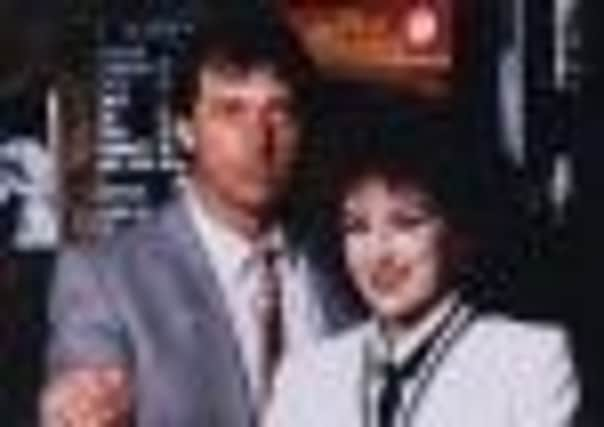Ian McMillan: Real people behind the infamy and celebrity


I was instantly reminded of the way they found Saddam Hussein, one of the most feared and hated men of modern times, cowering in a hole in the ground.
As the endgame reaches its final moves, the powerful often have their power stripped away until they’re just left holding their hands in the air and waving an off-white hanky.
Advertisement
Hide AdAdvertisement
Hide AdThe other day I was at King’s Cross station and I saw Anita Dobson walking across the concourse dragging a case on wheels. My first reaction was “I know her from somewhere. Does she sit near me at Oakwell?” My second reaction was “That’s Anita Dobson off EastEnders and Strictly Come Dancing” and my third reaction was “Well, she just looks ordinary”.
And that third reaction is the best one to have. In the end, whether in a hole or a sewer pipe or on the King’s Cross concourse, people are just people.
True, some people are surrounded and amplified by a kind of fizz which is either a fizz of terror or a fizz of glamour and that fizz makes them seem more than the sum of their parts.
We’ve seen dictators creating hell on the telly or in real life and we’ve seen Anita Dobson as Angie getting served with her divorce papers by Dirty Den on Christmas Day and so we think that they have become their fizz and more than their fizz. They haven’t, though: they’re simply human.
Advertisement
Hide AdAdvertisement
Hide AdI think that’s the way we should live: beyond the fizz. We shouldn’t be surrounded by Monsters or Celebrities or Icons or Stars or Evil Thugs from the Swamp. We should just be surrounded by people.
Years ago, I was in a multi-storey car park in Edinburgh and I came across an old man collapsed in a puddle of blood. This was in the days before mobile phones and so me and my mate ran to the car park attendants to get them to phone for an ambulance and the first thing they said was “Is he well dressed?” In other words “Is he worth ringing an ambulance for?”
In fact last week I was on Sheffield station and a man with no shoes and destroyed trousers and marinaded hair that hadn’t been washed since before the start of the Rugby World Cup asked a driver who’d just got off a train where a particular train was stopping before it got to its destination.
“You should have checked before you set off,” the driver said, which is the equivalent of “Is he well-dressed?”
Advertisement
Hide AdAdvertisement
Hide AdMaybe, because they were scruffy and unkempt they weren’t people, they were somehow beings from a lesser species. Newsflash: they’re people, just like you and me except they’ve got no shoes and they whiff a bit.
Once you decide that people are just people it makes life both a lot simpler and a lot more complex, I can tell you. Life is simpler because for a start it means no forelock-tugging, literal or metaphorical, ever again. That member of the Royal Family? That politician? That film star? Just a person, like you or me.
They’ve arrived where they are because of an accident of birth or huge ambition or good luck but they’re just people. Look: they’re blowing their nose, they’re chomping on a KitKat, they’re wiping dust from their collar.
Life is more complex however because you often come across people who aren’t, as James Stewart might have said, very nice folks. They’re criminals or they’re violent or they’re cheats or they shout things across the street at those who don’t look or sound like them.
Advertisement
Hide AdAdvertisement
Hide AdBut they’re people; they’re from the same race as us and they’re human like us even though it might not seem like it at times.
In the end, this humanism (because I guess that’s what it is) is liberating. If these people are, even if some remote way, like me then I can reach out and try to understand what they’ve done.
Of course understanding doesn’t mean condoning, it never does, but in our attempts to understand our fellow beings, to find out what makes them tick (even if sometimes you’d rather they didn’t tick so loudly) we can learn more about them and more about ourselves. And that’s got to be a good thing, hasn’t it?
Back on Sheffield station, though, I didn’t do anything to help the shoeless traveller. I walked by the other side of the platform and glanced at him out of the corner of my eye and went for an espresso with my lovely wife and we had four shoes between us.
We talked about him afterwards, about how the driver should have helped him but we didn’t help him. We’re all too human, I guess. And one day we’ll all end up without anything on our feet.